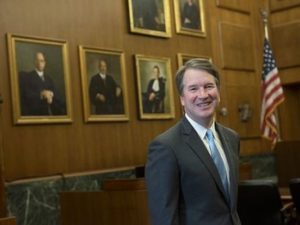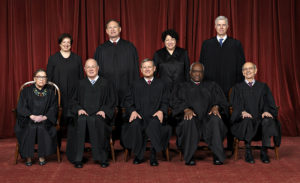I am feeling so good over the rescue of the Thai boys and their soccer coach from that flooded cave in northern Thailand that I want to offer a good word for Donald John Trump’s selection to the U.S. Supreme Court.
I’ll stipulate up front that you’ll deem this to be faint praise, but it’s praise nonetheless.
Appeals Court Judge Brett Kavanaugh’s nomination to the Supreme Court has angered the crackpot Trump “base.” They’re none too happy with Kavanaugh, fearing that he doesn’t appear to be as firmly opposed to Roe v. Wade as the base continues to be. Former U.S. Sen. Rick Santorum of Pennsylvania chided the president for surrendering to what he called the “Washington elite” by selecting Kavanaugh.
To be sure, the justice nominee is a conservative. He appears to be what one could call a “mainstream conservative,” not a goofball/wack-job conservative.
He has pledged to be independent and to study the law as it is written, not as one wishes it were written.
Is this the kind of judge I would have selected? Of course not! However, Trump is the president of the United States.
By anyone’s measure, Kavanaugh is supremely qualified to serve on the high court. He’s a Yale Law School grad, meaning that the entire Supreme Court would comprise Ivy League legal eagles if Kavanaugh is confirmed by the U.S. Senate.
The Senate will nitpick the daylights out of Kavanaugh’s lengthy written record. Senators will need to examine Kavanaugh’s views on health care, as well as on whether sitting presidents can be indicted for criminal offenses. His record suggests he might tilt the “wrong way” on both of those issues.
I continue to believe that while Kavanaugh’s conservative credentials might solidify the court’s right-leaning bias, it doesn’t guarantee it necessarily on every single key ruling that would come before the Supreme Court.
That seeming uncertainty, I submit, is what might be driving the Trump bloc of “base” voters nuts.


